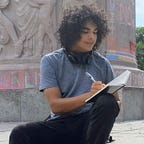Riots, Consequences, And What We Can Do About Them
America has gone postal.
What Minneapolis-St. Paul experienced is being beat-for-beat replicated in every major American city. In Chicago, people I know and cherish live in fear walking down the street, walking to work, trying to put their children to sleep. Bricks mysteriously appearing in the epicenters of riots. More clothing stores, liquor stores, supermarkets falling to looters. More anger. More arguments. National Guard deployments. Rage across the left and right, inexorable as tidal waves that douse no flame. There is no direction, only danger spreading from downtown and all across the city like the coronavirus we kind of forgot about.
Many on the left say that this damage is “for the cause,” that whatever material and business is lost will be worth the gains made in seeking to root out racism. And yet, a NY Magazine article by Jonathan Chait argues otherwise. Citing a study by Princeton assistant professor by Omar Wasow, he writes:
“Riots on the whole provoke a hostile right-wing response. They generate attention, all right, but the wrong kind…Wasow finds that nonviolent civil-rights protests did not trigger a national backlash, but that violent protests and looting did. The physical damage inflicted upon poor urban neighborhoods by rioting does not have the compensating virtue of easing the way for…
